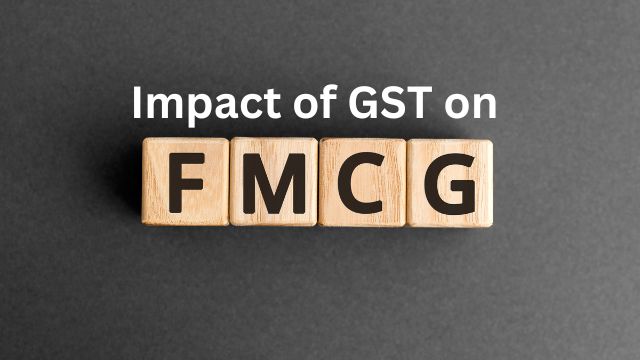India’s FMCG industry is one of the largest in the world. The main reason for that is the population. Today, brands also have their reach in rural areas, and the credit goes to the strong distribution network along with the population. FMCG, also known as Fast Moving Consumer Goods, are mainly consumables like groceries, toiletries and other things you need to replenish regularly. When the GST tax was implemented, it was certain that there would be an impact even on the FMCG Distributor and Products in India. The main reason for the impact was that GST was a consumption-based tax. So, how exactly were the FMCG Distributor and Products impacted? Let us find that out in the section below.
GST on FMCG Distributors and Products in India
Before the implementation of GST, the FMCG had multiple taxes on them. This included central sales tax, excise duty, service tax, vat and a lot of other taxes. With the implementation of GST, all the indirect taxes were encapsulated in a single heading. FMCG companies usually set up warehouses in different locations for distribution, so the tax used varies from state to state. As per the information available, the GST rates in the FMCG industry average out to be between 18% and 20%. In addition to this, the implementation of GST was a welcoming change. Now, different entities can claim input credit for the GST paid during the business. This has reduced the tax on tax that was earlier charged. Apart from this, it also helped companies maximise their profits or pass on the benefits to the end-user.
GST was a widely anticipated tax, expected to make things cheaper for the consumer. Most economic analysts had a certain expectation with the GST on certain categories. As per the GST slabs, most products are in the expected category except for a few. Some of the products were added in the 12% category, hence shooting up the price. Below are some of the categories, along with the GST rates
- Fresh Milk and Milk Products – 0%
- Coffee Beans – 0%
- Rice, wheat, maize and other grains – 0%
- Jaggery, Sugar – 0%
- Firewood or fuel wood – 0%
- Indigenous handmade musical instruments – 0%
- Puja Samagri – 0%
- Soya Chunks – 0%
- Mehendi paste in cones – 0.05%
- Edible Oil – 0.05%
- Pizza bread – 0.05%
- Namkeens,bhujia and mixture – 0.05%
- Cotton sewing thread – 0.05%
- Condensed milk – 0.12%
- Dried Nuts – 0.12%
- Soya milk drinks – 0.12%
- Surgical rubber gloves – 0.12%
- Idols of wood – 0.12%
- Bamboo flooring – 0.12%
- Chocolates and other food preparations – 0.18%
- cakes, biscuits and bakers’ wares – 0.18%
- Ice cream and other edible ice – 0.18%
- Non-alcoholic beverage – 0.18%
- Beauty or make-up preparations – 0.18%
- Caffeinated Beverages – 0.28%
- Carbonated Beverages – 0.28%
- Cigars, cheroots, and cigarillos – 0.28%
GST & FMCG Logistics
Since FMCG requires a lot of stock movement, there is a significant involvement of the logistics and distributors in the FMCG sector. The good thing is that after the implementation of GST, the distribution cost of products has dropped by 1.5%. This translates into better margins and business sustainability for FMCG distributors. The supply chain management has been optimized, and the payment of taxes has been simplified too. In addition, the logistics partner is able to claim input tax. All of these combined have a great positive impact on the FMCG and the logistics of the products.
FMCG Stock Transfer
Stock transfer is a common occurrence in the FMCG sector. Many times, the stock is transferred from one state to another. Under the GST framework, the stock for inter-state transfer is to be taxed, but there is a lack of clarity around here. It is also unclear if, in such a case, the tax will be on the value of goods for the end-consumer or if it is on the value of goods at the manufacturer’s price.
Final Take
This was all about the GST on FMCG Sector. More refinements are expected to come with the upcoming reviews. With GST, uniformity came into the picture, reducing the overheads not only for the FMCG companies but also for the FMCG distributors in India.















